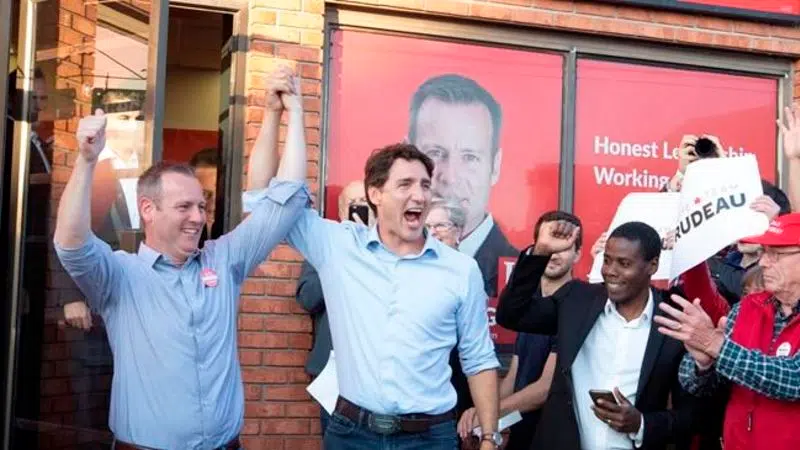
Grits, Tories start election campaign in dead heat, NDP, Greens tied: Poll
OTTAWA — Justin Trudeau’s Liberals and Andrew Scheer’s Conservatives were running neck-and-neck during warm-up laps for the start of the 40-day federal election campaign, a new poll suggests.
The Leger poll — released just hours before Prime Minister Justin Trudeau is to fire the starting gun Wednesday — suggests Jagmeet Singh’s NDP and Elizabeth May’s Greens were also in a dead heat, competing for a distant third place.
It put Conservative support at 35 per cent nationally to the Liberals’ 34 per cent — essentially a tie.
The NDP and Greens were also tied at 11 per cent, with Maxime Bernier’s fledgling People’s Party bringing up the rear with just three per cent.
